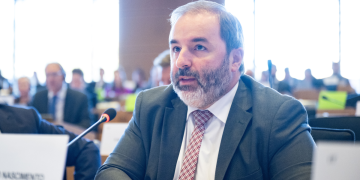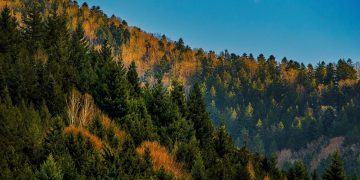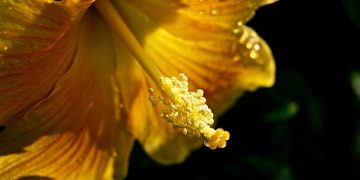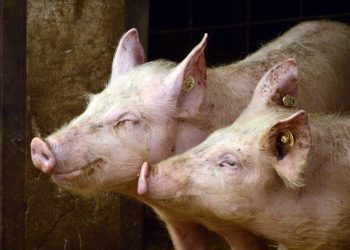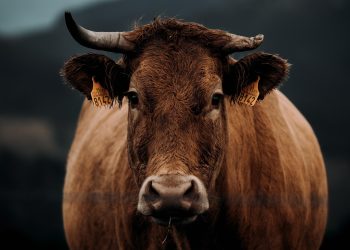German farmers in the Lower Oder Valley National Park on the eastern border with Poland faced a dilemma: what to do with grass that was useless as animal feed.
Like many of their counterparts in Europe, these agricultural producers were keen to avoid wasting a potentially valuable natural resource. They turned to the Leibniz Institute of Agricultural Engineering and Bioeconomy in Potsdam for answers.
German sprouts
The institute, known as ATB after its German name, has spent more than a decade looking into ways to use the grass from the Oder wetlands. Options included turning it into a charcoal-like product that contributes to carbon neutrality and is known as biochar, whose uses range from improving soil quality to insulating buildings.
‘At one point, the idea to use it for biochar production became most promising,’ said Dr Thomas Heinrich, an ATB researcher.
Biochar can replace mineral fertilisers or help in the production of biogas – a type of renewable energy from organic waste including manure and sewage. To make this idea work, scientists focused on developing the best methods to decompose grass from the wetlands and treat it with heat to create biochar.
The research became part of a wider initiative that received EU funding to unlock the often-overlooked potential of grasslands and create new business opportunities for rural areas in the EU.
Called GO-GRASS, the project began in October 2019 and runs until the end of March 2024.
‘There is an opportunity to preserve grasslands, which have a high value for society, and at the same time to make use of this biomass,’ said Dr Philipp Grundmann, who leads GO-GRASS and is an ATB researcher.
Possibilities aplenty
More than 30% of agricultural areas in the EU – some 50 million hectares – is covered by permanent grasslands. Yet this resource, which is valuable for the ecosystem, is threatened by urbanisation, afforestation, climate change and simple neglect.
“There is an opportunity to preserve grasslands, which have a high value for society, and at the same time to make use of this biomass.
Permanent grasslands store planet-heating carbon dioxide and absorb rainfall, reducing flood risks and purifying fresh water in the process.
They also play a big role in feeding animals such as cows, sheep, goats and deer, attracting smaller creatures including birds, butterflies and bees and enhancing cultural value by providing people with beautiful landscapes.
GO-GRASS brings together 23 partners from eight countries: Belgium, Denmark, Germany, Hungary, the Netherlands, Romania, Spain and Sweden.
The project is built around four small demonstration sites developing grass-based products. In addition to biochar production in the Lower Oder Valley, the sites are located in Denmark, the Netherlands and Sweden.
There, scientists from various institutions collaborate with farmers and industry in a bid to find sustainable ways to use grass.
Dynamic demos
In the Netherlands, for example, high-quality fibres are being extracted from cut grass and used in the production of packaging and paper.
In Denmark, scientists are determining which type of grass is best for the extraction of organic protein, which can serve as feed for pigs and poultry and replace less eco-friendly imported soy.
And in Sweden, reed canary grass is shredded and pressed into briquettes – a more sustainable and softer bedding for animals than the customary wood shavings. Afterwards, briquettes can serve as fertiliser and material for biogas or heat production.
Even as these four activities progress, follow-up demonstrations are being planned in Hungary, Romania and Spain.
So far, there is one potentially key project finding, which resulted from an impact assessment and from business modelling carried out by GO-GRASS: future consumers must be made aware of the ecological benefits of such products.
That’s because these goods are likely to be more expensive than traditional counterparts and, without knowledge of the environmental gains of their purchases, consumers might be less willing to pay the higher price.
Traditional custodians, high-tech managers
Grundmann said that farmers also deserve public financial aid as custodians of grasslands given their role in storing CO2.
‘Permanent grasslands are huge storers of carbon,’ he said. ‘It would be very important that the farmers actually also have some remuneration from carbon sequestration they are providing by taking care of the grasslands.’
Lessons from GO-GRASS will inform farmers and policymakers about how to make the best use of grasslands. The project plans to provide open-source manuals and online support.
“There seems to be a ‘sweet spot’ of management intensity where farmers can achieve a whole range of outcomes.
The carbon-storage capacity of grasslands has also drawn interest from an EU-funded research project called SUPER-G, which is due to wrap up in February 2024 after almost six years.
The project features 14 countries in Europe and 22 partner organisations. It aims to help farmers and policymakers take advantage not just of the carbon-storage potential of grasslands but also of their role in food production, water quality, flood control, biodiversity and landscape appeal.
‘The key thing is to better understand how permanent grasslands could be better managed,’ said Dr Paul Newell Price, the scientific coordinator of SUPER-G and an associate director at UK-based agricultural and environmental consulting group ADAS.
Advanced technologies that many farmers in Europe already use could be of help here.
For example, some farms use “virtual fencing” to control the movement of livestock with signals sent to GPS collars. Others deploy satellite imagery to detect grass with higher protein content or better digestibility.
‘Sweet spot’
The SUPER-G team said the results so far – based on an assessment of farms and experimental agriculture in six EU regions – show that farmers are able to act on several fronts simultaneously.
‘There seems to be a “sweet spot” of management intensity where farmers can achieve a whole range of outcomes,’ said Newell Price. ‘You are getting good levels of grass production with good quality, but you’re also storing a lot of carbon and it’s good for biodiversity.’
The researchers have also assessed farmer attitudes towards EU initiatives that aim to balance Europe’s need for adequate food production with environmental ambitions under the European Green Deal.
Like Grundmann of GO-GRASS, Newell Price said there’s a case for giving farmers financial aid to fulfil EU environmental goals.
‘We found that they were more willing to adopt certain practices if they were also paid for the ecosystem services they delivered,’ he said.
Both GO-GRASS and SUPER-G show that, when it comes to unlocking the potential of grasslands across Europe, researchers aren’t letting the grass grow under their feet.
Research in this article was funded by the EU. The views of the interviewees don’t necessarily reflect those of the European Commission. If you liked this article, please consider sharing it on social media.
O artigo foi publicado originalmente em Horizon, the EU Research and Innovation Magazine.

